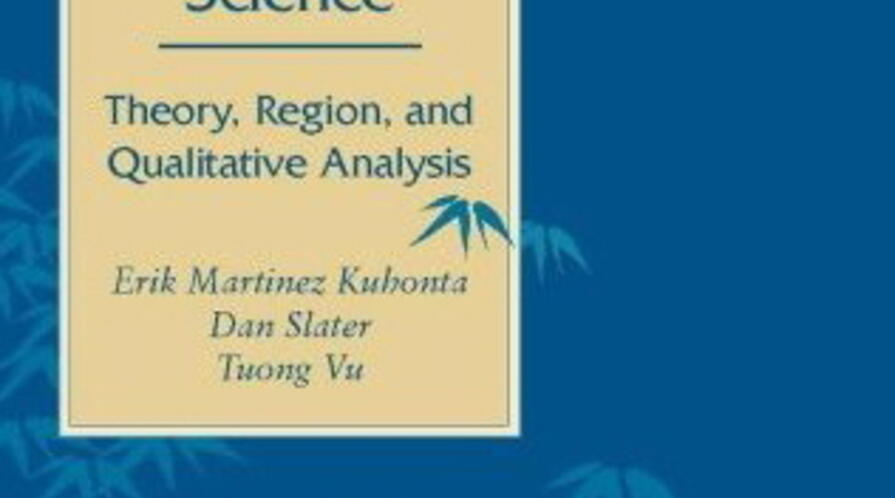State of the art of the state?

Southeast Asia in Political Science: Theory, Region, and Qualitative Analysis is now available for purchase from Stanford University Press. Co-published with the East-West Center, the book is innovative in several respects.
First, it reflects new thinking by younger scholars. Its editors are all assistant professors of political science specializing on Southeast Asia: Erik Martinez Kuhonta (McGill University), Dan Slater (the University of Chicago), and Tuong Vu (the University of Oregon, Eugene).
Southeast Asianist assistant professors also account for seven of the volume's other contributors: Regina Abrami (Harvard Business School), Jamie Davidson (National University of Singapore), Greg Felker (Willamette University, Salem, Oregon), Kikue Hamayotsu (Northern Illinois University), Allen Hicken (University of Michigan, Ann Arbor), Ardeth Maung Thawnghmung (University of Massachusetts, Lowell), and Meredith L. Weiss (State University of New York, Albany).
Three senior scholars round out the table of contents: Richard F. Doner (Emory University), Donald K. Emmerson (Stanford University), and Ben Kerkvliet (Australian National University).
Second, the book is a "state of the art" review of political science knowledge of Southeast Asia. Nothing else like it exists. What do we really know about, the state, political economy, political parties, ethnic and religious politics, rural politics, globalization and politics, democracy or the lack of it, and political life generally in Southeast Asia? For scholars, students, and the interested public, this book is a unique place to pursue the answers.
Third and also distinctive is the book's exploration of unchartered intellectual terrain-the simultaneously productive and turbulent overlap between Southeast Asian studies and political science. Are the area and the discipline at odds? Do they offer rival methods and clashing epistemologies? Or are place-based knowledge and disciplinary ambitions mutually enhancing? The authors of the volume wrestle with these questions as well.
The idea behind Southeast Asia in Political Science dates from the conference Southeast Asia in Political Science: Theory, Region, and Qualitative Analysis organized by SEAF at Stanford in 2004 while Erik Kuhonta was at APARC as a Shorenstein Fellow.
